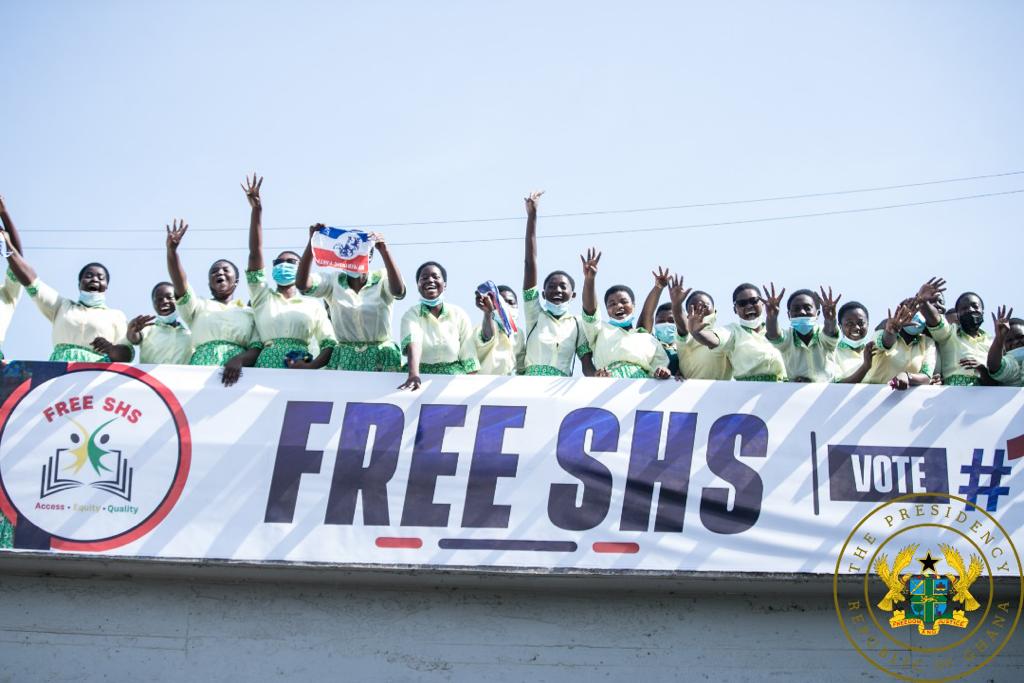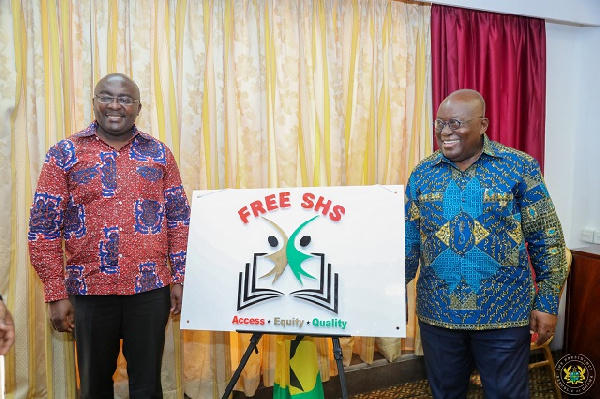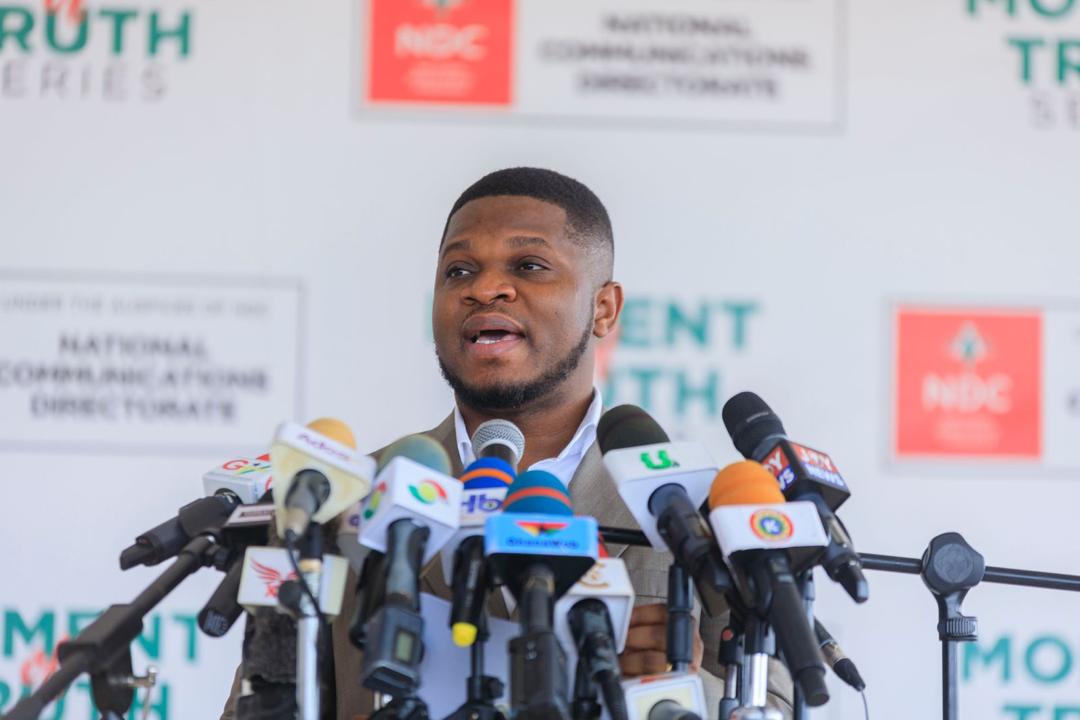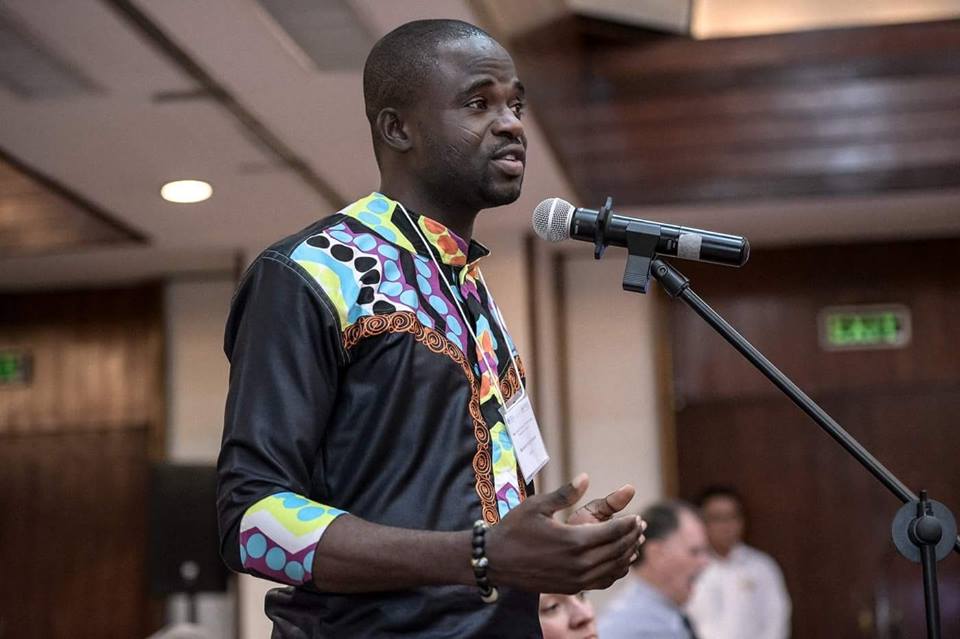
A heated debate has erupted between Sammy Gyamfi, the National Communications Officer of the National Democratic Congress (NDC), and renowned investigative journalist Manasseh Azure Awuni over the implementation of the Free Senior High School policy.
The clash began when Manasseh Azure, known for his critical stance on government policies, published an article questioning the sustainability and effectiveness of the Free SHS program.
Azure argued that while the policy aimed to provide free education to all Ghanaian children, its implementation had been plagued with numerous challenges, including inadequate infrastructure, overcrowding in schools, and delayed disbursement of funds.
Azure pointed out that many schools were struggling to accommodate the surge in student enrollment, leading to a decline in the quality of education.
He contended that prior efforts by former President John Mahama, the flagbearer of the NDC in the 2024 elections, to implement a version of Free SHS while he was president were inadequate.

“Akufo-Addo stayed on his Free SHS but lost the 2008 election. He kept faith in it and lost in 2012.
“Then, in 2015, when the NDC administration, led by John Mahama, realised that he still had not given up on the Free SHS, they decided to cripple that policy by implementing something that was an insult to the intelligence of Ghanaians.
“In September 2015, I wrote an article titled ‘The Lies About Mahama’s Free SHS Policy’. And this paragraph from that article shows the deception that the government introduced ostensibly to undermine the Akufo-Addo Free SHS.”
He cited a 2015 initiative by the Mahama administration, which offered what he called minimal financial relief to students and was criticised for being insufficient to cover actual educational expenses.
“The Government says GH¢12.2 million has been released to implement the programme for the first term of the 2015-2016 academic year.
“The policy will benefit 320,488 students. This means that, in a term, each student will only benefit from GH¢38. Thirty-eight cedis is how much each student will benefit from this policy. Ask the SHS students how much each student pays for PTA dues alone, not to talk about other fees per semester.
“This is what the Mahama administration did, and nobody could call that Free SHS. When Akufo-Addo took office in 2017, he launched the Free SHS in September of that year. It was the first time secondary education in Ghana was truly Free in recent history,” he

He also criticised the government for failing to adequately address the concerns of teachers and parents, resulting in a chaotic and poorly managed system.
In response, Sammy Gyamfi, however, defended the Free SHS policy, calling Azure’s article “misleading and politically motivated.”
The exchange between Gyamfi and Azure quickly gained traction, with supporters and critics of both parties weighing in on the debate.

Sammy Gyamfi said Article 25(1)(b) of the 1992 Constitution had already laid the groundwork for the policy long before Nana Addo’s campaign promise.
“The main point of disagreement between the NDC and NPP on the Free SHS debate was on the issue of implementation approach. Whereas the NPP advocated for a wholesale implementation approach, the NDC advocated for a progressive implementation approach while equally prioritising access and quality. True or false?
“In September 2015, H.E. John Dramani Mahama launched progressively Free SHS, as had been canvassed by the NDC all along. True or false?
“UNESCO commended John Mahama in October 2015 for commencing the progressively Free SHS program. Even before that, Nana Addo had publicly lauded Mahama for commencing the implementation of progressively Free SHS. True or false?
“The progressively Free SHS program launched by John Mahama in 2015 absorbed GH¢54 of the fees of 1st year and continuing day students and GHS58 of the fees of 1st year boarding students for the 2016/2017 academic year and not GH¢38 as claimed by you. This is contained in a widely published official release from the Ghana Education Service,” he stated.
Gyamfi asserted that the NDC’s approach focused on progressive implementation, prioritising both access and quality, in contrast to the NPP’s implementation approach.
“The GH¢12.1 million you are talking about was only the first financial release by the government for the implementation of the progressively Free SHS program.
“The total EXPENDITURE by the government on the progressively Free SHS program for the 2015/2016 academic year was an amount of GH¢25.96 million. This is contained in paragraph 781 of the NPP’s own 2017 budget approved by Parliament. True or false?
“The progressively Free SHS program initiated by the NDC/Mahama government in 2015 benefited 320,488-day students in public SHS.
“Government also announced an intention to include 120,000 targeted boarding students in the program for the 2016/2017 academic year. This is contained in paragraph 109 of the 2016 mid-year budget review statement approved by Parliament. True or false?” he asked.
This confrontation highlights the ongoing political divide over the Free SHS policy, which remains a key issue in Ghanaian politics.
As the country prepares for the next general elections, the effectiveness and future of the Free SHS policy are likely to be major talking points.


